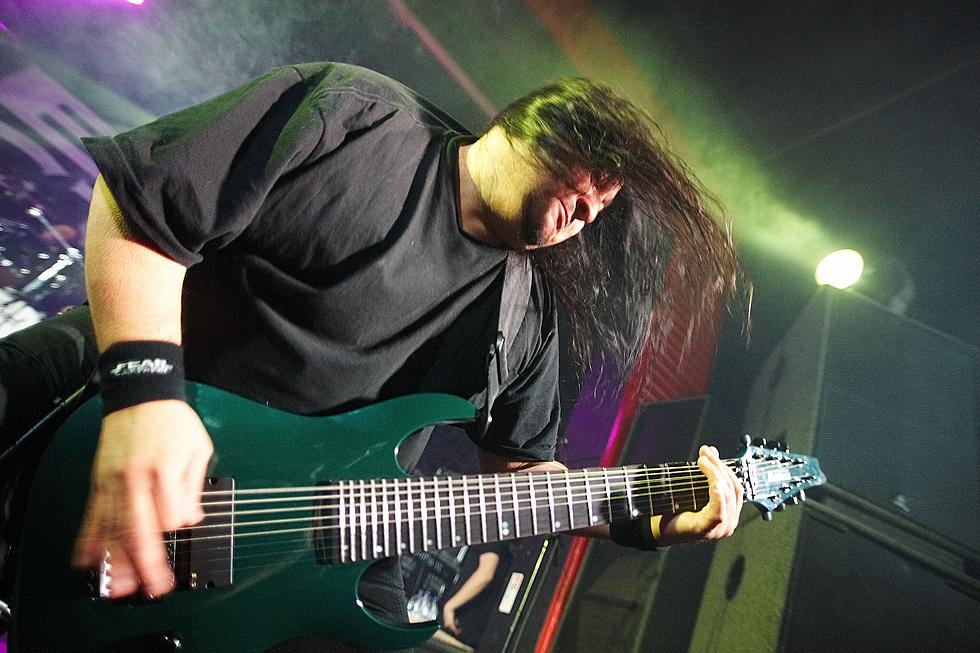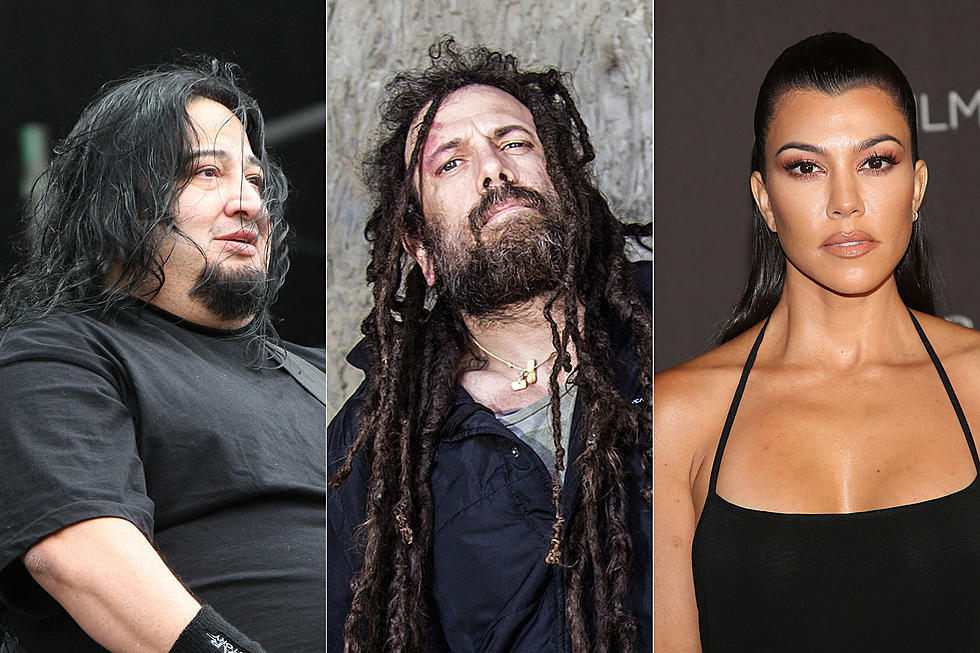
Fear Factory’s Dino Cazares – New Singer Will Have Some Freedom, But We Have to Continue Tradition
Fear Factory's Dino Cazares was the guest on Full Metal Jackie's weekend radio show, joining the host to discuss the band's latest effort, Aggression Continuum. During the chat, Cazares discussed the long path to finally releasing the new music after internal lawsuits delayed the record and offered a hint at how they will move forward after singer Burton C. Bell's exit from the group.
Cazares also spoke about the development of Fear Factory's unique style, what he's learned as a songwriter over the years and the importance of tradition in keeping Fear Factory moving into the future. Check out the chat in full below.
We're here to talk about the new Fear Factory record, Aggression Continuum. It was finalized over the course of several years. How did that extended amount of time inadvertently benefit the finished album?
It totally benefited us because it gave me more time to think about the improvements that I could make, because sometimes when you make records and you go back to "Man, I wish I could change this part." Well, actually I got that opportunity to do that.
For most people who don't know, we actually completed the record in 2017 because of legal issues that were held up with a trademark named Fear Factory. We couldn't release the record. So until that agreement was worked out and I was able to regain the trademark rights in 2020, I was able to go back and make improvements on the record and finally get it out.
Dino, there's never a shortage of interpersonal chaos surrounding Fear Factory. How has that turbulence actually fueled your creative determination?
It definitely fueled it a lot because I'm able to channel my feelings and obviously release it out in my art. It really shows on this record because you can really hear the aggressiveness, the pissed-off-ness in the vocals and just the riffs. And the syncopated double bass makes for a very powerful record. We're very happy that we were able to channel all of those issues that we were going through whether it'd be our political environment, our social environment, our inner turmoil that we were having between the band and all the lawsuits. So we were able to channel all that and put it out in the music.
Fear Factory, "Disruptor"
Fear Factory pioneered a sound that contrasts cold, mechanized aggression with lush hints of humanity. Why is that disparity so creatively appealing to you?
Because I love the contrast. I love the contrast between writing some intense music and then all of a sudden it goes to this beautiful angelic [feeling]. It's kind of like seeing the light at the end of the tunnel because you can feel all this stress and tension during the verses and during the intro of the record. And all of a sudden it goes into this beautiful melodic chorus, and it just opens everything up.
I've always been a fan of melodic music and way back when we were coming up with this style, we were like, how do we add those elements that we like? And then once we figured out the formula, we just went along with it and it just really worked well. Especially on this record, you can really feel the contrast with songs like "Disruptor" and "Fuel Injected Suicide Machine" and "Recode," you can really hear those elements really pop it out. They're just beautiful.
Fear Factory, "Recode"
Burton C. Bell established the vocal sound people associate with Fear Factory. What balance of uniqueness and familiarity would you like a new singer to bring to the band?
Well, I definitely want to continue with the tradition of the vocal style, the contrast between the melodic and the heavy parts. I definitely wanted to give the new vocalist some freedom to do what they like as well, whatever elements are going to bring into the band, but at the same time, we have to continue that tradition of where it started 30 years ago and continue moving forward with that same style.
Dino, creative arts, including music, are long-term journeys of learning and evolution of knowledge and technique. What's most different now about your creative ability compared to when you were younger?
Well, when I was younger, you can hear the influences on the record. You know what I mean? So our first record, Soul of a New Machine, when that record came out, we put 17 songs in the record and you kind of learn how to chop down to pick the best 10 songs. But at that time when we were young, we were just like, let's throw every song that we got on the record, but as a musician, you never stop learning, right? And we just got better and better and better.
One of the main things that really helped us get better as well as songwriters was traveling the world and just seeing all the different cultures and talking to people and eating their food and just eating the different types of food and just seeing what their social issues that they're going through really makes for as a musician and trying to express our art, help us. It really helped us grow and to become mature songwriters. And that's one of the things that really helped us a lot.
Thanks to Fear Factory's Dino Cazares for the interview. You can pick up the new 'Aggression Continuum' album here. Stay up to date on all things Fear Factory via their website, Facebook, Twitter, Instagram and YouTube accounts. Find out where you can hear Full Metal Jackie's weekend radio show here.
- PLAYLIST: Keep up with each week's new songs by following Loudwire's 'Weekly Wire' Spotify playlist, featuring 50 tracks with updates each Friday afternoon.
2021's Best Metal Songs (So Far)
More From KZCD-FM










